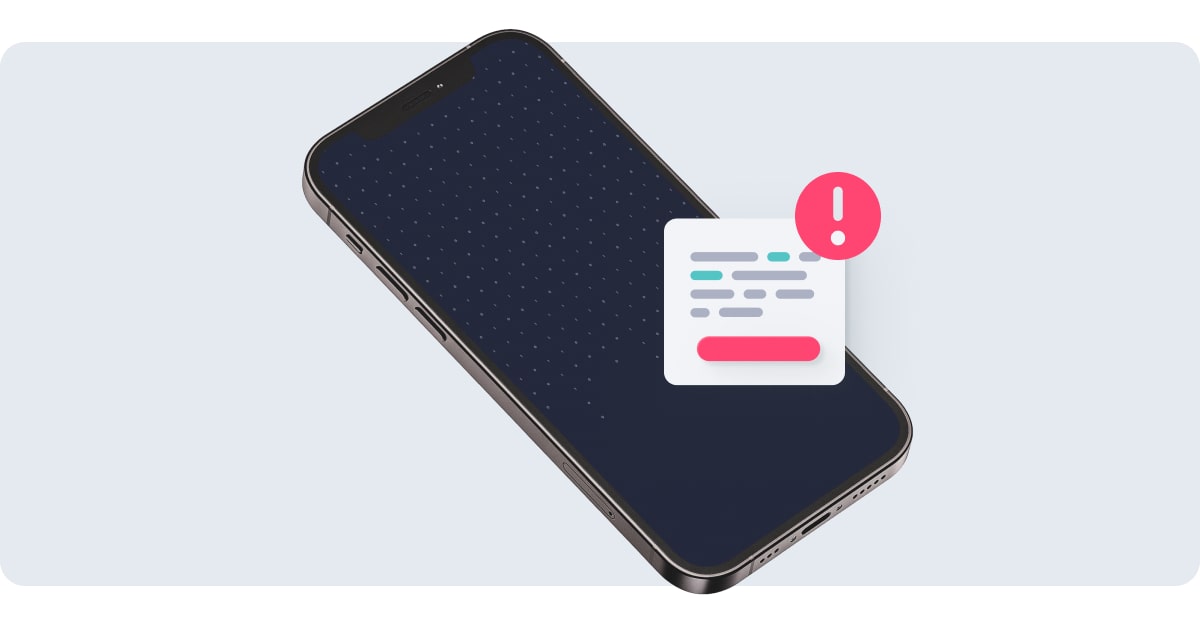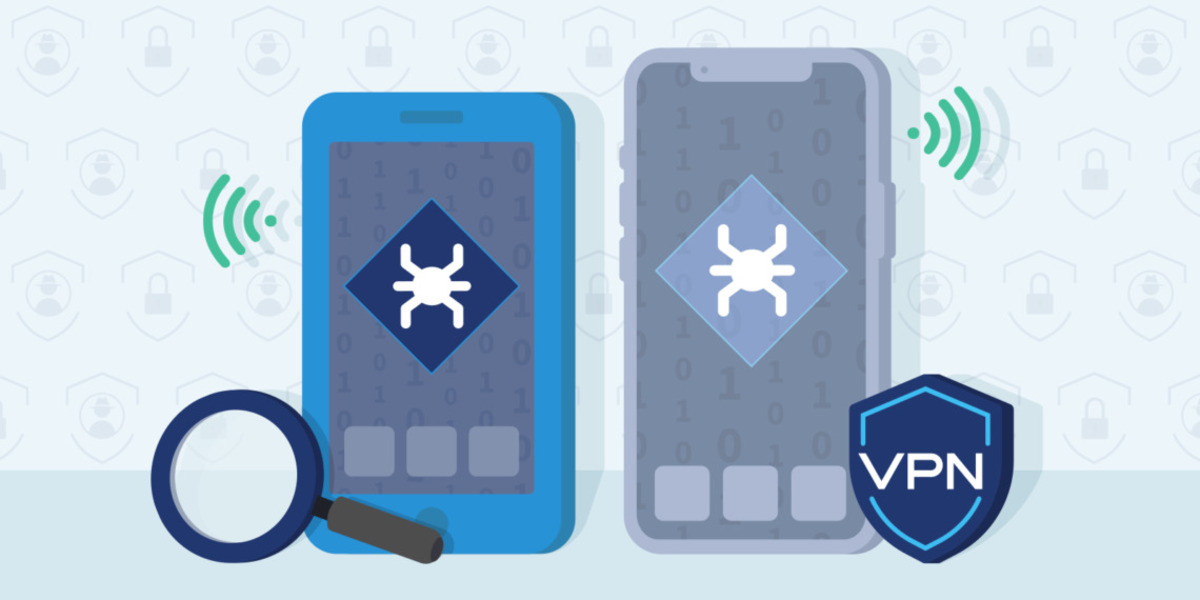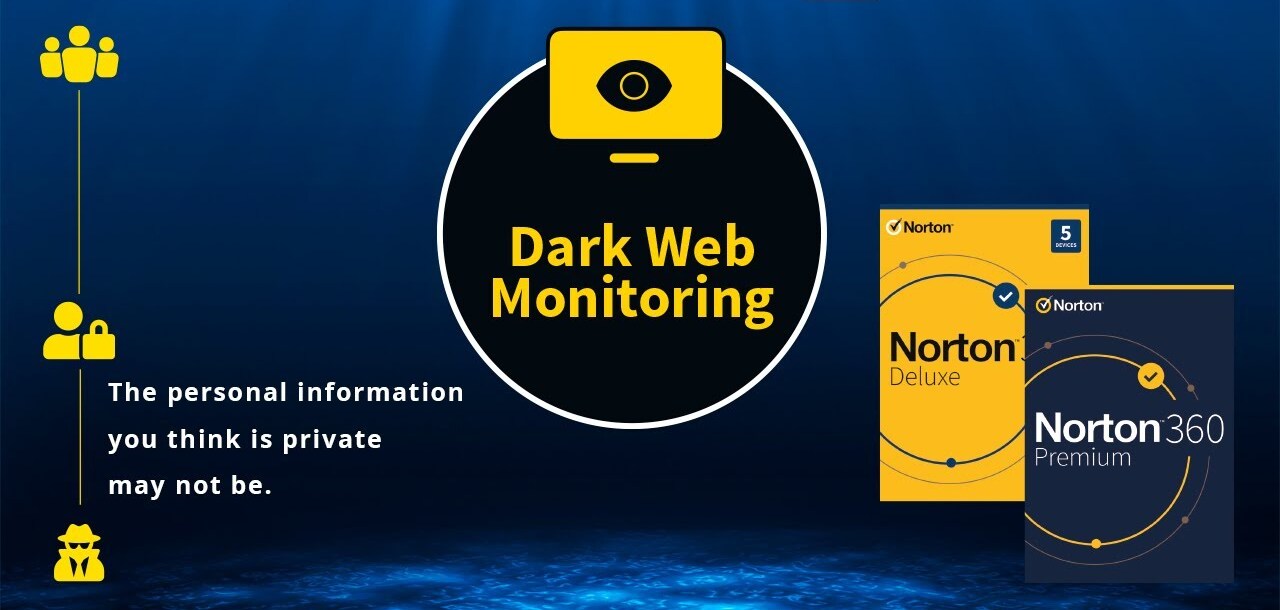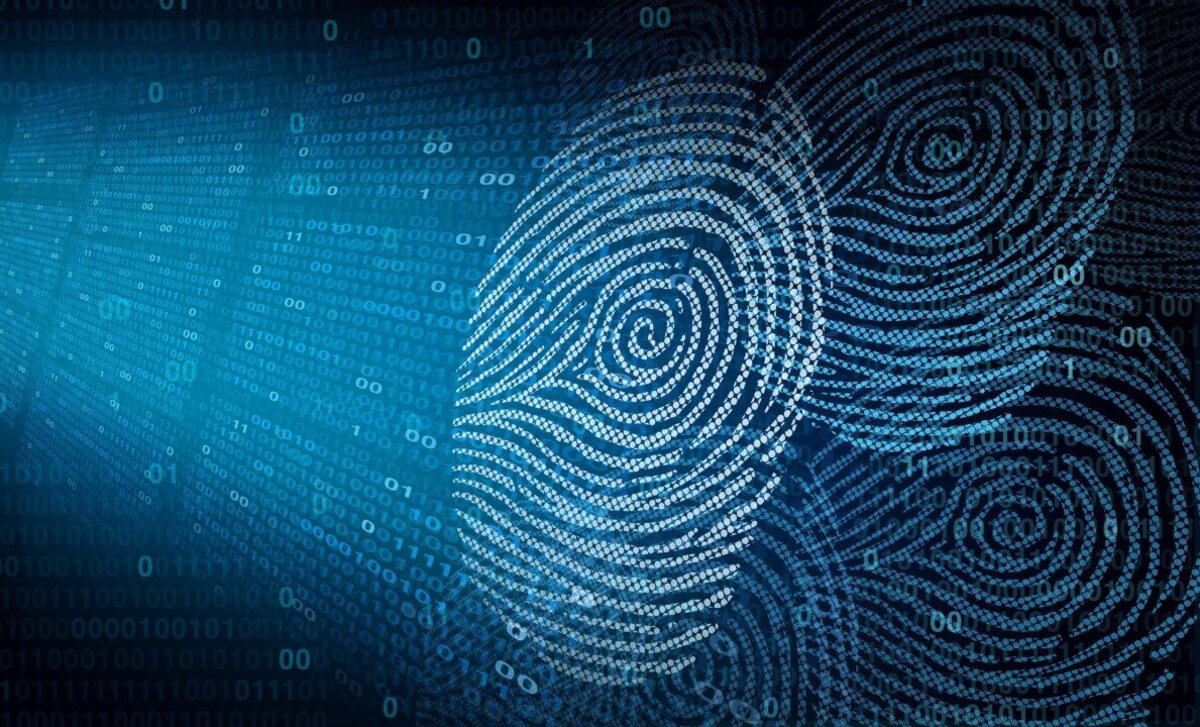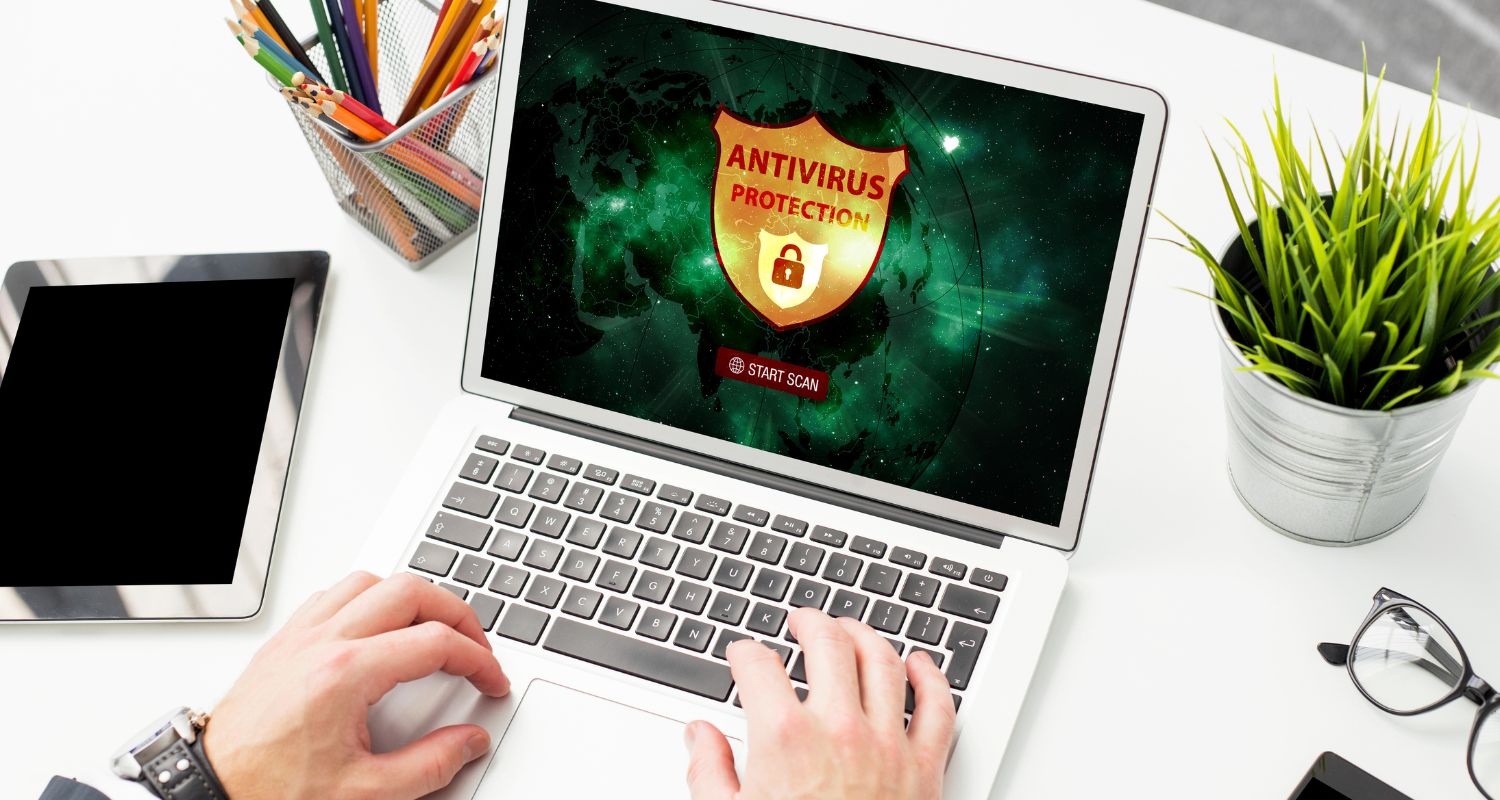Introduction
Welcome to the digital age, where personal information is constantly at risk of being exposed. With the proliferation of data breaches and cybersecurity threats, it’s important to be aware of the potential dangers lurking in the depths of the internet. One such perilous realm is the Dark Web.
The Dark Web, often associated with illegal activities and underground markets, is a part of the internet that is not easily accessible to the average user. It operates on anonymous networks, allowing users to remain hidden and keep their activities concealed. Unfortunately, this hidden corner of the internet is also where stolen data, including personal information, is traded and sold.
Many people are unaware of how their personal information, such as phone numbers, can end up on the Dark Web. It may seem like a mysterious and overwhelming issue, but it’s important to understand the implications and take proactive steps to protect yourself.
This article will shed light on the Dark Web, explain how your phone number may have ended up there, and provide a guide on what to do if you find your phone number listed in this dangerous realm. By following the steps outlined in this article, you can take control of your online security and mitigate the risks associated with having your personal information exposed.
What is the Dark Web?
The Dark Web is a hidden part of the internet that is not indexed by traditional search engines. It operates on anonymous networks and requires specific software, such as Tor, to access. Unlike the “surface web” that most users are familiar with, the Dark Web is intentionally designed to conceal the identities and activities of its users.
Within the Dark Web, there are various marketplaces, forums, and websites that cater to illegal activities, such as the sale of drugs, weapons, stolen data, and even hiring hackers for criminal activities. It is a haven for cybercriminals, making it a breeding ground for cyberattacks and identity theft.
It’s important to note that not everything on the Dark Web is illegal. While it does have its share of illicit activities, it also serves as a platform for whistleblowers, journalists, and activists who rely on anonymity to share sensitive information in oppressive regimes.
The anonymity and encryption provided by the Dark Web make it extremely difficult for law enforcement agencies to track down cybercriminals. This anonymity, however, also creates a thriving marketplace for selling personal information obtained from data breaches. When a significant data breach occurs, the stolen information often finds its way onto the Dark Web, where cybercriminals trade and sell it to the highest bidder.
Now that we have a better understanding of the Dark Web, it’s essential to explore how your phone number may have been exposed and ended up in this hidden corner of the internet.
How did my phone number end up on the Dark Web?
There are several ways your phone number can end up on the Dark Web. Understanding these avenues can help you better protect your personal information and mitigate future risks.
1. Data breaches: Data breaches occur when cybercriminals gain unauthorized access to databases containing sensitive information. These breaches can happen to various organizations, including financial institutions, e-commerce platforms, and social media networks. When a data breach occurs, personal information, including phone numbers, can be stolen and later sold on the Dark Web.
2. Phishing attacks: Phishing attacks involve fraudulent emails or messages designed to trick individuals into revealing their personal information, including phone numbers. These scams can be highly convincing, often impersonating legitimate organizations or individuals. If you fall victim to a phishing attack and provide your phone number, it can be used by cybercriminals or sold on the Dark Web.
3. Malware and spyware: Malicious software, such as malware and spyware, can infect your devices and steal various forms of personal information, including your phone number. Cybercriminals can then use or sell this information on the Dark Web, putting your privacy and security at risk.
4. Social engineering: Social engineering refers to the manipulation of individuals to divulge sensitive information. For instance, a cybercriminal may impersonate a representative from your mobile service provider and convince you to provide your phone number. This information can later be exploited or sold on the Dark Web.
5. Publicly available information: In some cases, your phone number may have been inadvertently shared or disclosed publicly. This can happen when you provide your phone number on websites, social media platforms, or online directories without considering the potential risks. Cybercriminals can scrape this information and add it to their databases for further use or sale on the Dark Web.
It’s important to note that even if your phone number is on the Dark Web, it doesn’t necessarily mean it has been actively used or exploited. However, considering the implications of having your personal information exposed, it’s crucial to take action and protect yourself.
Finding out if your phone number is on the Dark Web
Discovering whether your phone number is listed on the Dark Web can be a daunting task, but there are steps you can take to check for its presence and take appropriate action.
1. Use Dark Web monitoring services: Several online services specialize in monitoring the Dark Web for stolen personal information. They scan various marketplaces, forums, and databases to check if your phone number, along with other sensitive information, is being traded or sold. These services can provide you with alerts if your information is found, allowing you to take immediate action.
2. Conduct manual searches: If you prefer a hands-on approach, you can manually search certain Dark Web marketplaces and forums by using Tor or other anonymous browsers. However, keep in mind that this method can be time-consuming and requires some technical knowledge to navigate and search effectively.
3. Utilize online security tools: Some online security tools offer features that allow you to check if your personal information, including your phone number, has been compromised in a data breach. These tools aggregate data from various sources and can provide you with insights into whether your information is floating around the Dark Web.
4. Monitor suspicious activity: Be vigilant for signs of suspicious activity related to your phone number, such as unexpected texts or calls, unfamiliar account logins, or unusual charges on your phone bill. If you notice any of these signs, it could indicate that your phone number has been compromised and is being exploited on the Dark Web.
Remember, finding your phone number on the Dark Web is not a guarantee that it is being actively used or abused. However, it should serve as a wake-up call to take immediate action to protect yourself and prevent further harm.
In the next section, we will discuss the steps you can take if you find your phone number listed on the Dark Web.
Steps to take if your phone number is on the Dark Web
If you discover that your phone number is listed on the Dark Web, it’s crucial to take prompt action to safeguard your personal information and prevent further misuse. Here are the essential steps you should take:
1. Contact your mobile service provider: Inform your mobile service provider about the situation and provide them with any relevant details. They can help monitor your account for any suspicious activity, implement additional security measures, or even change your phone number if necessary.
2. Changing your phone number: Changing your phone number can provide an added layer of protection, especially if your current number has been compromised. Contact your mobile service provider to request a new phone number. Ensure that you update your phone number with important accounts, such as banking, social media, and email, to avoid any disruption in communication.
3. Strengthening your online security: Take this opportunity to enhance your overall online security. Change your passwords for all your online accounts, use strong and unique passwords, and enable two-factor authentication wherever possible. Regularly update security software on your devices and be cautious of suspicious links, emails, or messages that may attempt to steal your personal information.
4. Monitoring your credit and identity: Keep a close eye on your credit reports and financial accounts. Monitor for any unusual activity, such as unauthorized transactions or new accounts being opened under your name. Consider placing a fraud alert or freezing your credit to provide an extra layer of protection against identity theft.
5. Educate yourself and stay vigilant: Stay informed about the latest cybersecurity threats and scams to better protect yourself in the future. Be cautious while sharing personal information online and learn to identify phishing attempts or suspicious messages. Regularly monitor your online presence and ensure that your privacy settings are appropriately configured on social media platforms.
By following these steps, you can take back control of your online security and minimize the risks associated with having your phone number listed on the Dark Web.
In the next section, we will discuss the importance of contacting your mobile service provider and the actions they can take to assist you in this situation.
Contacting your mobile service provider
If you find that your phone number is on the Dark Web, one of the first steps you should take is to contact your mobile service provider. They play a vital role in helping you mitigate the risks associated with having your personal information exposed. Here’s what you need to know:
1. Inform them about the situation: Reach out to your mobile service provider and provide them with details regarding the presence of your phone number on the Dark Web. This information will help them understand the severity of the situation and assist you accordingly.
2. Monitor for suspicious activity: Your mobile service provider can help monitor your account for any suspicious activity. They have systems in place to detect unauthorized access or changes to your account information. By staying vigilant and regularly checking your account activity, you can spot any unusual behavior that might indicate misuse of your phone number.
3. Implement additional security measures: In response to the incident, your mobile service provider can put additional security measures in place to protect your account. This can include setting up stronger authentication methods, such as requiring a PIN or passphrase before making account changes or transferring the number to a new device.
4. Change your phone number: If your phone number has been compromised, your mobile service provider can assist you in changing it. They will guide you through the process and ensure that your new number is properly activated and linked to your account. Changing your phone number can help sever any potential connections to your compromised information on the Dark Web.
5. Provide guidance and support: Your mobile service provider is there to support you throughout this process. They can answer any questions you may have, provide guidance on enhancing your account security, and keep you informed of any developments related to your situation.
It’s important to note that contacting your mobile service provider is a crucial step, but it should not be the only action you take. Be proactive in implementing additional security measures, such as changing passwords and monitoring your credit and identity, as mentioned in the previous section.
Next, we will discuss the importance of changing your phone number if it has been compromised on the Dark Web.
Changing your phone number
If you discover that your phone number has been compromised and is on the Dark Web, one of the most effective steps to protect yourself is to change your phone number. Here’s why and how to go about it:
1. Sever ties to compromised information: Changing your phone number helps sever any potential connections between your compromised number and your personal information on the Dark Web. By getting a new number, you eliminate the risk of further exploitation or misuse associated with your previous number.
2. Contact your mobile service provider: Reach out to your mobile service provider and inform them about the situation. Request a new phone number and follow their instructions for the number change process. They will guide you through the necessary steps to ensure a smooth transition and update your account information accordingly.
3. Update your contacts and accounts: After obtaining your new phone number, take the time to update your contacts and notify important accounts that require your phone number for verification or communication purposes. This includes financial institutions, social media platforms, email providers, and other services that rely on your phone number as a means of authentication.
4. Inform your contacts: Let your close friends, family, and essential contacts know about the change in your phone number. This can help ensure that they update their records and continue to reach you without any interruption.
5. Be cautious with your new number: As you get your new phone number, be cautious about sharing it indiscriminately. Think twice before providing it online, on social media platforms, or to unknown individuals or websites to minimize the risk of it being exposed or abused.
Changing your phone number is an effective measure to protect your privacy and mitigate the risks associated with having your compromised number on the Dark Web. However, remember that it is just one part of a comprehensive approach to enhancing your online security. Be sure to implement other recommended measures, such as strengthening your passwords, enabling two-factor authentication, and monitoring your credit and identity.
In the next section, we will discuss the importance of strengthening your online security to further safeguard yourself from the repercussions of having your phone number on the Dark Web.
Strengthening your online security
Discovering that your phone number is on the Dark Web serves as a sobering reminder of the importance of bolstering your online security. Here are several steps you can take to enhance your digital defenses:
1. Change and strengthen your passwords: Regularly update your passwords for all your online accounts, making sure they are strong and unique. Use a combination of uppercase and lowercase letters, numbers, and special characters. Avoid using easily guessable information, such as names or dates, and never reuse passwords across multiple accounts.
2. Enable two-factor authentication (2FA): Enabling 2FA adds an extra layer of security by requiring an additional verification step when signing in to your accounts. This typically involves entering a unique code sent to your mobile device or using a biometric factor such as a fingerprint or facial recognition.
3. Keep software and devices up to date: Regularly update your operating system, applications, and antivirus software to ensure you have the latest security patches and protections against known vulnerabilities. Enable automatic updates whenever possible to streamline the process.
4. Exercise caution with links and downloads: Be cautious when clicking on links or downloading files, especially from unfamiliar sources or suspicious emails. Verify the legitimacy of websites before entering personal information or making financial transactions. Use reputable antivirus software to scan downloads and detect any potential threats.
5. Be mindful of social engineering attacks: Educate yourself about social engineering tactics, such as phishing scams or impersonation attempts. Be skeptical of unsolicited messages or requests for personal information, and always verify the authenticity of the sender before sharing any sensitive data.
6. Implement a reliable security software suite: Install comprehensive security software that includes antivirus, firewall, and malware protection. Regularly scan your devices for any potential threats and follow the recommendations provided by the software to remove or quarantine any malicious files.
7. Review and adjust privacy settings: Take the time to review and adjust the privacy settings for your online accounts and social media profiles. Limit the amount of personal information that is publicly available and consider restricting access to your posts and personal details to trusted individuals only.
By taking these proactive steps, you can significantly reduce the risk of falling victim to cyber threats and better protect your personal information from being exploited on the Dark Web.
Next, we will discuss the importance of monitoring your credit and identity to stay proactive in the face of potential repercussions from having your phone number on the Dark Web.
Monitoring your credit and identity
Discovering that your phone number is on the Dark Web highlights the importance of monitoring your credit and identity for any signs of unauthorized activity. Here are key steps you can take to stay proactive:
1. Check your credit reports: Regularly obtain and review your credit reports from major credit bureaus such as Experian, TransUnion, and Equifax. Look for any unfamiliar accounts, inquiries, or discrepancies. Monitor your credit score to detect any unexpected changes that could indicate potential identity theft.
2. Consider a credit monitoring service: Consider enrolling in a credit monitoring service that provides alerts for any significant changes to your credit reports. These services can help you stay informed of potential fraudulent activities and take immediate action to address them.
3. Monitor financial accounts: Regularly monitor your bank accounts, credit card statements, and other financial accounts for any suspicious transactions or unauthorized activity. Report any discrepancies to your financial institutions immediately and take the necessary steps to safeguard your accounts.
4. Freeze or place a fraud alert on your credit: If you suspect that your personal information has been compromised, you can consider placing a fraud alert or freezing your credit. A fraud alert alerts potential creditors to verify your identity before extending any credit, while a credit freeze restricts access to your credit report, preventing new accounts from being opened without your explicit permission.
5. Be cautious of phishing attempts: Remain vigilant for phishing attempts via emails, text messages, or phone calls that may aim to trick you into sharing your personal information. Exercise caution when providing sensitive data and verify the legitimacy of the request before proceeding.
6. Monitor your online presence: Regularly search for your name, email address, or phone number on search engines to see if they appear in any suspicious contexts. Set up Google Alerts to receive notifications when your information appears online. This allows you to proactively address any potential security breaches or unauthorized use of your information.
By actively monitoring your credit and identity, you can quickly detect and address any signs of potential fraud or unauthorized activities. Timely action is crucial in minimizing the potential damage caused by having your phone number compromised on the Dark Web.
In the next section, we will conclude the article by summarizing the key points discussed and reinforcing the importance of taking proactive steps to safeguard your personal information.
Conclusion
The presence of your phone number on the Dark Web can be a disconcerting discovery. However, by taking proactive steps and following the guidelines outlined in this article, you can mitigate the risks associated with having your personal information exposed.
Understanding the Dark Web and how your phone number may have ended up there is the first step towards protecting yourself. Whether it’s through data breaches, phishing attacks, or social engineering, cybercriminals are constantly looking for ways to exploit personal information, including phone numbers.
If you find that your phone number is listed on the Dark Web, it’s crucial to take immediate action. Contact your mobile service provider to inform them of the situation, monitor your account for suspicious activity, and consider changing your phone number to sever any potential connections.
Additionally, strengthening your online security is paramount. Change and strengthen your passwords, enable two-factor authentication, and keep your software and devices updated with the latest security patches. Be cautious of social engineering attempts and be mindful of the links you click and the files you download.
Monitoring your credit and identity is another important step. Regularly check your credit reports, consider credit monitoring services, and keep a close eye on your financial accounts. By staying vigilant and proactive, you can detect and address any signs of unauthorized activity early on.
In today’s digital landscape, protecting your personal information is of utmost importance. Take control of your online security, be mindful of the information you share, and remain informed about the evolving cybersecurity threats.
Remember, while the Dark Web can be a murky and dangerous place, by following the steps outlined in this article, you can minimize the risks and navigate the digital world with greater confidence.







